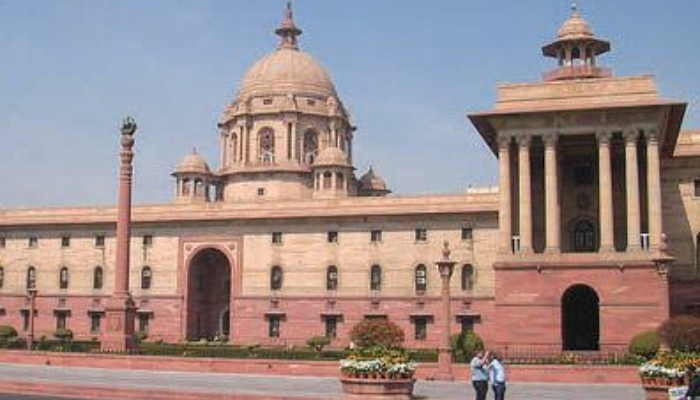
or

A Special Leave Petition was filed by Andhra Pradesh Tourism Development Corporation Limited (APTDCL) against the order of High Court appointing Arbitrator on the application of Pampa Hotels Limited (Pampa) under section 11 of and Conciliation Act, 1996 (the Act). One of the contentions of APTDCL before the Apex Court was that there was no valid and binding arbitration agreement between the parties. It was claimed by APTDCL that Pampa was not incorporated under the Companies Act at the time of signing of the agreement and therefore, there was no valid and binding agreement between the parties. The Apex Court accepted the contention of APTDCL and ruled that there was no valid agreement between the parties. In law, agreement on behalf of unincorporated company is signed by the promoters and such agreement is warranted by the terms of incorporation of the Company. Only then, are such agreements binding on the company post incorporation. In this case, the agreement was signed by the company which was unincorporated at the time of signing the agreement, and thus the apex court held that there was no binding agreement between the parties.
At the time when the judgment was delivered by the High Court, the appointment of the arbitrator under section 11 by the Chief Justice or his nominee was treated to be an exercise of administrative power. Such orders could be challenged only in a writ petition before the High Court. Therefore, the order appointing an arbitrator by the Chief Justice of India under section 11 could be challenged before the High Court in a writ petition. A seven-judge Bench of the Apex Court in the case of SBP & Co. vs. Patel Engineering Limited (2005) 8 SCC 295 had held that the exercise of power under section 11 was judicial power and the order of High Court can be challenged before the Supreme Court in an SLP. The Apex Court had further ruled that the Chief Justice or his nominee while deciding a petition under section 11, have to first decide as to whether there is a valid and binding arbitration agreement between the parties before referring the matter to the arbitrator. It was further ruled in Patel Engineering Limited that the judgment will have prospective application and law laid down in the judgment will apply to all pending cases. The High Court of Andhra Pradesh had delivered its order on 16/08/2005 , i.e. prior to the law laid down by the Apex Court in case of SBP & Co. vs. Patel Engineering Limited (2005) 8 SCC 295.
Since the law laid down in the case SBP & Co. vs. Patel Engineering Limited (2005) 8 SCC 295 is to have prospective application, therefore, the Apex Court opined that the issue whether there was a valid arbitration agreement is to be decided by the arbitrator and referred the matter to the arbitrator to decide as per the legal position explained by the Apex Court in its decision. It is submitted that the Apex Court, instead of sending the matter to the arbitrator ought to have decided the issue itself, exercising its plenary power under article 142 of the Constitution for doing complete justice between the parties. It is also submitted that referring the matter to the arbitrator in the situation was unwarranted and a sheer wastage of time, energy and resource, as the arbitrator is left with no other choice except to follow the mandate of the Apex Court. The Apex Court had “put the cart before the horse” by asking the arbitrator to decide, when in fact, the Apex Court had itself decided the issue emphatically in its decision and in such circumstances asking the arbitrator to decide would tantamount to directing the arbitrator to re-write the decision of Apex Court. If the Hon’ble Apex Court thought that it was constrained to follow its earlier larger Bench judgment in the case of SBP & Co. vs. Patel Engineering Limited (2005) 8 SCC 295, in letter and spirit, then in that case, it ought not have entertained the SLP in the first place as it was bound to treat the impugned order as administrative order and no appeal was maintainable.
N Swaminathan is a Senior Manager Legal and Regulatory at Bharti Infratel Limited. The views expressed above are his personal.

Lex Witness Bureau

Lex Witness Bureau

For over 10 years, since its inception in 2009 as a monthly, Lex Witness has become India’s most credible platform for the legal luminaries to opine, comment and share their views. more...
Connect Us:


The Grand Masters - A Corporate Counsel Legal Best Practices Summit Series
www.grandmasters.in | 8 Years & Counting
The Real Estate & Construction Legal Summit
www.rcls.in | 8 Years & Counting
The Information Technology Legal Summit
www.itlegalsummit.com | 8 Years & Counting
The Banking & Finance Legal Summit
www.bfls.in | 8 Years & Counting
The Media, Advertising and Entertainment Legal Summit
www.maels.in | 8 Years & Counting
The Pharma Legal & Compliance Summit
www.plcs.co.in | 8 Years & Counting
We at Lex Witness strategically assist firms in reaching out to the relevant audience sets through various knowledge sharing initiatives. Here are some more info decks for you to know us better.
Copyright © 2020 Lex Witness - India's 1st Magazine on Legal & Corporate Affairs Rights of Admission Reserved